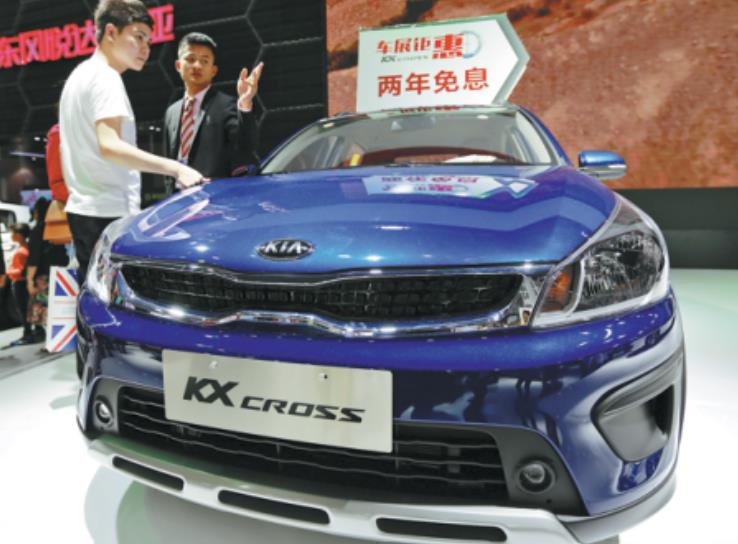Car factories could boost flagging production with Chinese startups

As joint-venture automakers face excess production capacity, when a business does not produce as many products as it could, collaborating with Chinese electric car startups to produce new energy vehicles could be a solution, say insiders.
Dongfeng Yueda Kia - the South Korean carmaker Kia's joint venture in China - took the lead in collaborating with Chinese electric car startup Human Horizons in the latter half of June.
According to the deal, Human Horizons will produce its first model at a plant owned by Dongfeng Yueda Kia. Mass production is scheduled to start in 2021.
"The spare capacity of joint ventures makes their collaboration with electric vehicle startups possible," said independent auto analyst Zhang Zhiyong.
Public data show that some joint-venture automakers used less than 40 percent of their capacity in 2018.
With three plants in Yancheng, Jiangsu province, Dongfeng Yueda Kia has an estimated total production capacity of 890,000 units per year.
Its fourth plant was approved in 2017. It is expected to help the joint venture expand its annual capacity to 1 million units.
However, the first three plants are far from reaching their capacities. There is no news of progress on the fourth one.
In 2018, Dongfeng Yueda Kia produced 362,000 vehicles, with a rate of capacity utilization of 40.6 percent.
During the first five months of this year, the joint venture had a total sales volume of 128,000 units.
This was a decline of 11.4 percent compared with the same period last year.
Its rate of capacity utilization decreased to 34.8 percent.
Other companies facing the same issue of excess production capacity are Dongfeng Renault, Dongfeng Peugeot Citroen Automobile Company and Changan Ford.
As of the end of 2018, Dongfeng Renault had a capacity utilization rate of 31.9 percent, Dongfeng Peugeot Citroen Automobile was at 25.5 percent and Changan Ford at 24.2 percent.
With its plant in Wuhan, Hubei province, having a total capacity of 150,000 units per year, Dongfeng Renault produced just 48,000 vehicles in 2018.
During the first quarter of this year, Dongfeng Renault produced 5,700 vehicles, fulfilling 15.2 percent of its production capacity.
Dongfeng Peugeot Citroen Automobile has an annual production capacity of 990,000 units, but only produced 252,000 in 2018.
It manufactured 35,000 vehicles in the first three months this year, achieving a capacity utilization rate of 14.2 percent.
With five plants and an annual total capacity of 1.6 million units, Changan Ford produced 387,000 units in 2018.
Changan Ford had produced 31,000 vehicles during the first quarter of this year, with capacity utilization rate of 7.9 percent.
With no production qualifications, some electric car startups prefer to outsource production to established carmakers, usually Chinese ones.
For instance, JAC Motors, a State-owned carmaker in East China's Anhui province, is producing vehicles for new energy car startup Nio. Also, Xpeng is having its first model produced by Haima Automobile's plant in Central China's Henan province.
According to Zhang, compared with China's conventional automakers, the joint-venture carmakers are believed to have more strict production line management.
It is, in some sense, an advantage for joint ventures to join hands with the new energy vehicle startups, added Zhang.

